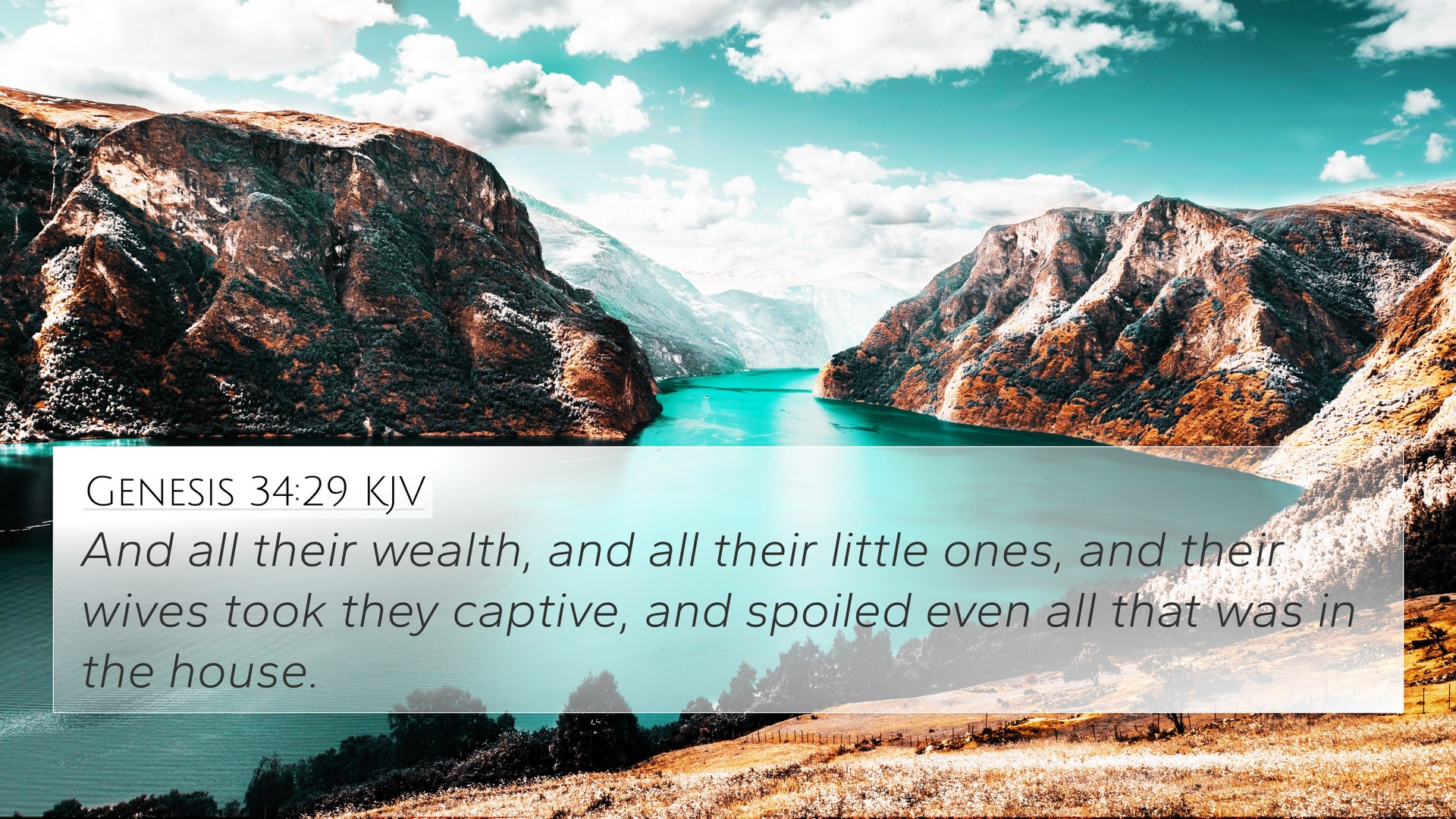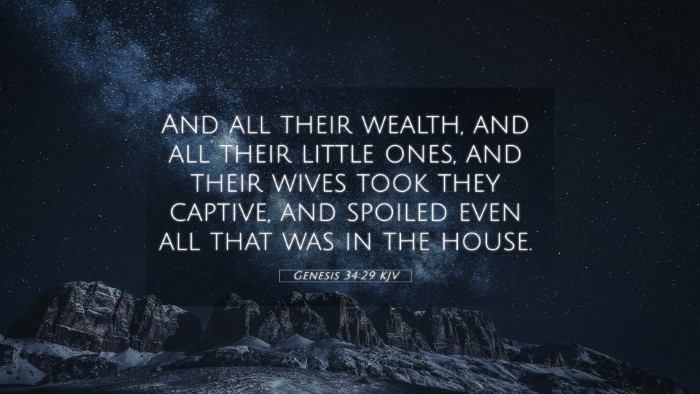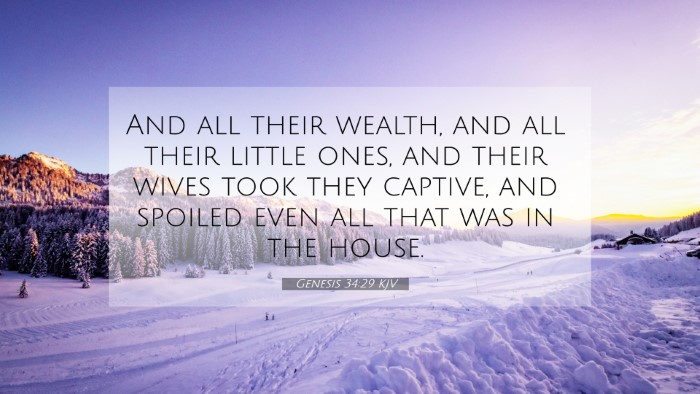Meaning and Interpretation of Genesis 34:29
Genesis 34:29 narrates a significant event in the life of Jacob's family, detailing the aftermath of the violent reaction to the defilement of Dinah, Jacob's daughter. The verse reads: "And all their wealth, and all their little ones and their wives took they captive, and went away." This passage sheds light on themes of violence, family honor, and the consequences of sin.
Historical Context
The events surrounding this verse occur after Shechem, the son of Hamor, rapes Dinah. Jacob's sons deceive Shechem and his father into believing that they would agree to intermarriage if the men of the city were circumcised. After their agreement, Simeon and Levi take vengeance on the city while the men are incapacitated. This act of violence sets up a complex dynamic regarding morality, justice, and redemption.
Commentary Insights
- Matthew Henry: Henry emphasizes that the actions of Simeon and Levi, while motivated by a desire to protect their sister’s honor, result in a brutal act that leads to the capture of the entire community’s wealth. He warns of the dire consequences of uncontrolled anger.
- Albert Barnes: Barnes notes the moral implications of the brothers' actions, suggesting that while they sought justice, their methods were far from righteous. He provides a reflective commentary on how vengeance leads to further sin, calling for a more measured response to wrongdoing.
- Adam Clarke: Clarke elucidates the cultural context, explaining that the taking of captives and spoils was not uncommon in ancient warfare. He also highlights the complexities of family loyalty contrasted with the broader implications of their actions on Jacob's household and reputation.
Thematic Connections and Bible Verse Parallels
This verse connects to various other biblical themes and scriptures that enhance understanding through comparative analysis:
- Exodus 21:24: "Eye for eye, tooth for tooth..." - Examines the principle of justice.
- Proverbs 16:32: "Better a patient person than a warrior..." - Highlights the value of restraint over vengeance.
- Genesis 49:5-7: Jacob's curse on Simeon and Levi illustrates the full consequences of their violent actions.
- Deuteronomy 19:11-13: Laws regarding avenging blood emphasize the moral implications of revenge.
- Matthew 5:38-39: Jesus' teaching on turning the other cheek challenges the Old Testament’s justice principles.
- James 1:20: "Human anger does not produce the righteousness that God desires," underscoring the theme of righteous behavior.
- Luke 9:55-56: Reflects on Jesus' rejection of the spirit of vengeance, promoting mercy.
Lessons Learned
The narrative of Genesis 34:29 serves as a cautionary tale about the depths of human depravity and the consequences of sinful actions. It urges readers to consider the impact of their response to injustice, advocating for justice tempered with mercy and understanding.
Tools for Bible Cross-Referencing
Using tools for cross-referencing, such as a Bible concordance or a cross-reference Bible study guide, readers can explore the connections between Genesis 34:29 and other scripture. This approach fosters a richer understanding of biblical themes and their interrelations.
Understanding Inter-Biblical Dialogue
In understanding the connections between the Old and New Testaments, cross-referencing can reveal profound parallels and themes that transcend single verses. The examination of verses involves:
- Identifying underlying moral and ethical teachings.
- Recognizing how narratives inform theological doctrines.
- Exploring the continuity of themes such as justice, mercy, and redemption across scripture.
Conclusion
Genesis 34:29 presents a complex narrative that invites theological reflection and ethical consideration. By linking this verse with others throughout the Bible, we can deepen our understanding of the implications of human actions, the nature of justice, and the call to live according to God’s higher standard.


